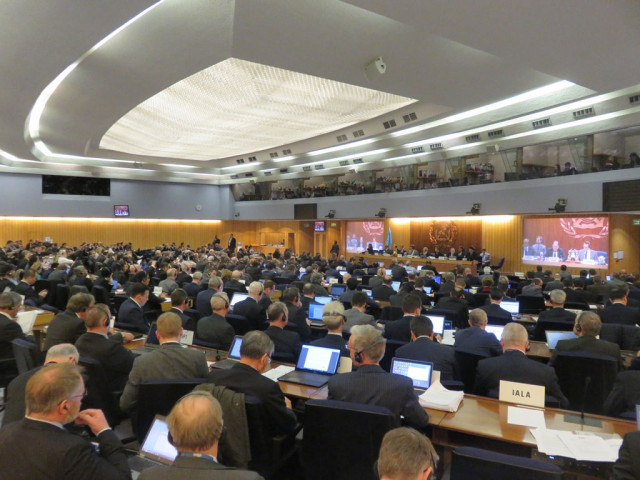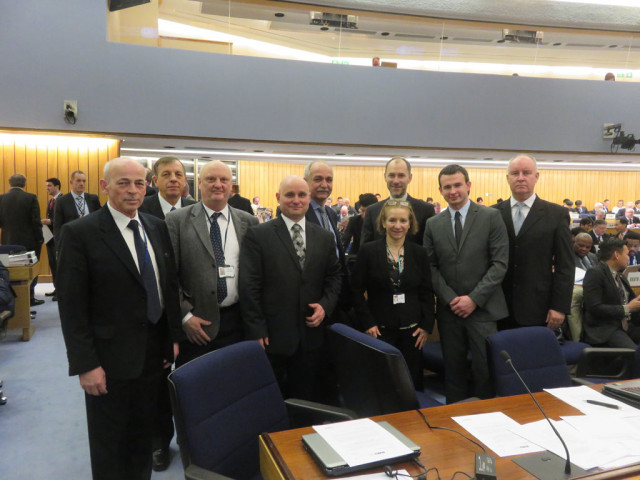From 29 February to 4 March 2016, the 3rd session of the Sub-Committee on Safety of Navigation, Communication, Search and Rescue (NCSR) of the International Maritime Organization was held in London.

The plenary sessions were chaired by R. Lakeman from the Netherlands. Over 400 representatives from member states, observers and consultants from inter-state and non-governmental organisations participated in the event. Three working groups were established: Navigation, Communication, Search and Rescue as well as one editorial group on the MSI guidebook.
The following employees of the Faculty of Navigation of the Maritime University of Szczecin participated in plenary sessions and working groups as experts from the Polish delegation: Zbigniew Pietrzykowski PhD, Eng., Professor of the Maritime University, Paweł Zalewski, PhD, Eng., Professor of the Maritime University and Wiesław Salmonowicz, MSc.
The plenary sessions and meeting of working groups concerned mainly:
- approval of proposed new routes, traffic separation schemes, ship reporting systems, water regions prohibited from navigation as well as areas of increased alertness,
- amendments to the general provisions on ships’ routeing (Resolution A572(14)),
- considering Galileo as an element of the World Wide Radionavigation System WWRNS,
- introduction of additional modules to the revised performance standards for INS (Resolution MSC.252(83)) related to harmonization of design and displaying information on the navigation bridge,
- updating of the LRIT system,
- guidelines for ships’ multi-system radionavigation receivers related to harmonization of PNT data,
- participation of IHO in works on the S-100 and S-101 standards,
- revised guidelines and criteria for the ship reporting system (AIS and e-navigation, Resolution MSC.43(64)),
- recognition of the Iridium satellite navigation system in GMDSS,
- mutual connection of receivers in NAVTEX and INMARSAT networks and in the integrated system of navigation data presentation (TBA),
- detailed review of GMDSS system,
- requirements for Maritime Mobile Service devices of class H (DSC VHF with GNSS) and class M (“man overboard” radio beacon with GNSS, AIS sender and DSC transceiver),
- issues of the International Telecommunication Union (amendments to chapter IV of SOLACE),
- issuing of the ICS guidebook on huge-scale maritime rescue operations: provision of security and protection of seamen and rescued individuals,
- analysis of information concerning development of Inmarsat and COSPAS/SARSAT satellite services - discontinuation of Inmarsat F77 system services,
- Cospas-Sarsat MEOSAR system,
- preparation of guidebooks concerning harmonization of air and maritime procedures of search and rescue including SAR training issues,
- development of the International SAR Plan and review of guidelines for preparation of cooperation plans between SAR services and passenger ships,
- application of COLREG provisions with regard to mast lights and protection of vessels laying underwater cables (cable-laying ships).
Three correspondence groups were established with the purpose of preparing guidelines for another NCSR4 session concerning:
- additional modules in INS (integrated navigation systems) work standards - a group coordinated by China,
- ships’ multi-task radionavigation receivers related to PNT data harmonization - a group coordinated by Germany,
GMDSS modernisation - a group coordinated by the USA.



